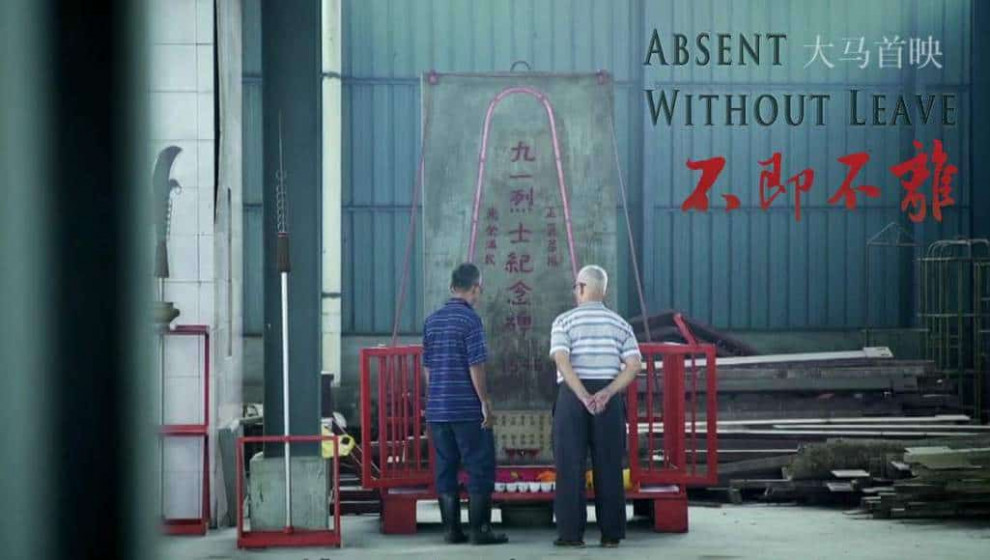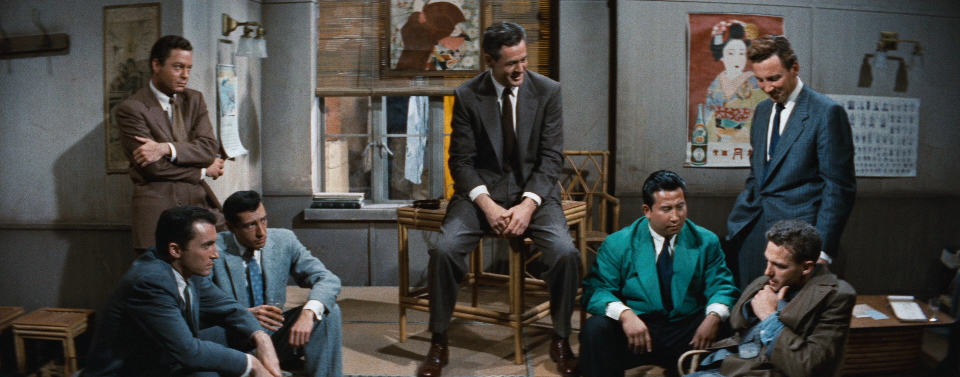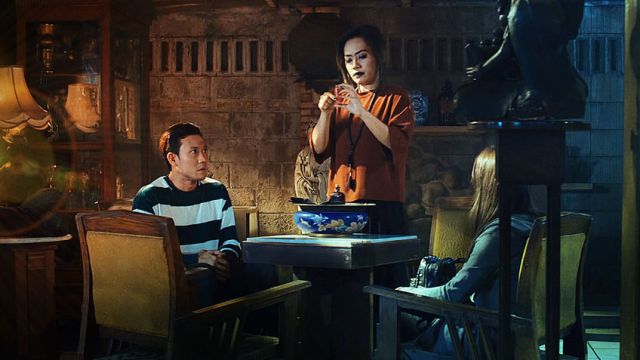Filming one's family members is an old trope in documentary filmmaking. If you don't know what to say, start with something that your are familiar with. We seem to be hearing film teachers passing this lesson to numerous aspiring filmmakers. At first glance, Lau Kek-uat and Chen Jing-Lian's documentary “Absent without Leave” seems to be following this well-trodden road. However, as the journey goes on, one immediately realizes that they are after something much bigger and more profound.
Watch This Title

Lau and Chen wish to use this film to navigate the repressed history of the Malaysian Communist Party. Because of this subject matter, the film was banned by the Malaysian government in 2017. To bypass the censorship, he production company HummingBird Production decided to send url links of the film to people in Malaysia who wished to watch it.

Though the film is dealing with a political subject, the filmmakers don't spend too much time on abstract ideas. Moving away from grand and totalizing categories, “Absent without Leave” points to a lived world constituted by songs, food, and natural landscape. This is hardly an apolitical stance, rather the filmmakers are asking us to face directly these people's historical experiences.
“Absent” traces a group of people whose identity were largely shaped by the geopolitical structure of the time. The film makes sure to show us both the actual and the potential. Through this bifurcated vision, we are able to have a processional understanding of the Malaysian (mostly Chinese) communists' decisions and identity formation. We understand that all of them identify themselves as Chinese, yet at the same time the British colonial government's “divide and rule” policy, the post-war Malaysian government's ethnic nationalistic policy, and Mao's China's frantic anti-foreigner sentimentality limit their choices and possibilities. The Malaysian ethnic Chinese communists can only be Chinese; otherwise they have no where to anchor themselves. An old lady in the film summarizes this dilemma poetically, “when I am awake, I am in China; when I am asleep, I am in Malaysia”.
This film show us how the political can deeply permeate the personal. The film starts as a son's (the director Lau) journey to reconnect with his father, a reticent middle-aged man. According to the son, they haven't spoken for years. The lack of rapport between the father and the son is palpable at the beginning of the film. Director Lau even tries to taunt his father by pointing the camera directly at him.

If the directors merely stopped at this personal level, I don't think “Absent” would be this rich exploration of history and identity. Recognizing his father's inability to express himself, Lau lets us think about what could be the cause of this. This shifts the film's focus to Lau's grandfather. Soon we realize that his grandfather is also an estranged figure in his father's life. Fighting the Japanese army as a communist member, Lau's grandfather was killed after an informant reported him to the authority when he got back home. The film then switches to a higher lever. Now, we are seeing different ex-activists and fighters, who may or may not know Liao's grandfather during the war. I think this is one of the strongest point of the film. “Absent” is a family drama, yet it never restricts itself to one family. By looking beyond the director's family story, we see how similar experiences play out again and again in different people's lives. They've all have to bury their comrades, give away their children, move to another county at some point in their lives. Each individual has his one's own experiences, yet they all have a similar story to tell.
It is through this detour that Liao can imagine what might his grandfather be like. The film uncovers a constellation of experiences shared by these people. Then we can start imaging Liao's grandfather might be constituted by the fragments of this set of shared experiences.

The film also has a keen eye on the sensual aspect of belonging. These ex-communists all feel connected to Malaysia, not because (or not merely so) of some ideological reasons, but because of their sensory memory of the place. It is the smell of Malaysian A1 curry, the scent of coconut milk, the sound of the music, and the sight of the forest that connect these people to one another and to the land of Malaysia. Through similar scenes, the film lets us see how different people are all craving for some Malaysian curry simultaneously, or how they are remembering the same song in different settings. The long shots of natural scenery show us what does it feel like to live in the forest of Malaysia, and provide a way for us to partake in these diasporic Chinese-Malaysians' nostalgia. These tactile feelings and memories forge their sense of identity.
This work achieves something so rarely done in cinema. It shows us macro political structure through individual experiences, and tactile feelings through immaterial images. It also lets us see that we could sacrifice ourselves for abstract ideals, but it is through concrete lived practices that we are connected to one another and the places we live in.













